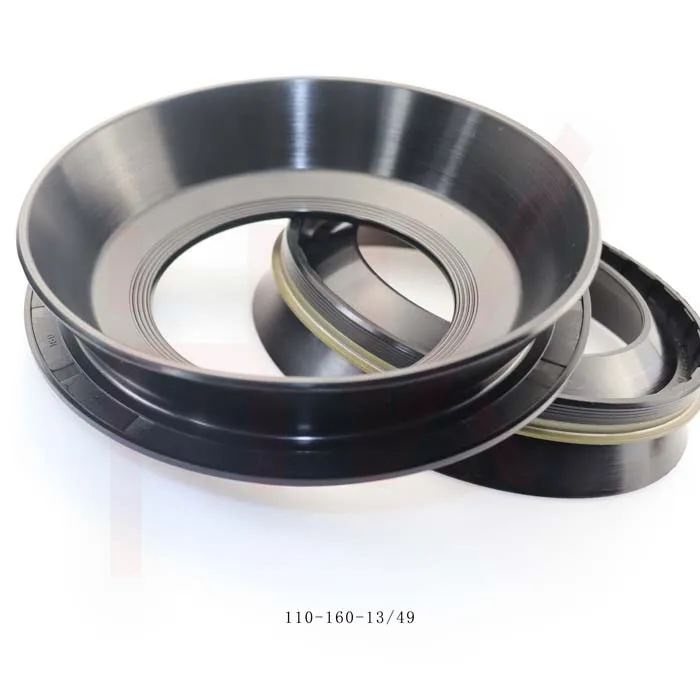Nov . 16, 2024 10:09 Back to list
dust seal
Understanding Dust Seals Their Significance and Application
Dust seals are critical components in various industrial and mechanical systems, playing a vital role in protecting equipment and ensuring optimal performance. These seals serve as barriers against dust, dirt, moisture, and other contaminants that can compromise the integrity of machinery and devices. In this article, we will explore the different types of dust seals, their applications, and why they are essential for maintaining the longevity and efficiency of equipment.
What is a Dust Seal?
A dust seal is specifically designed to prevent particulate matter from entering a mechanical assembly. Typically made from flexible materials such as rubber, polyurethane, or silicone, dust seals provide a protective lining that keeps dirt and debris at bay. Their main function is to safeguard moving parts, bearings, and seals from wear and tear that can be caused by abrasive particles.
Types of Dust Seals
Dust seals come in various forms, each suited for specific applications. Here are a few common types
1. Lip Seals Often used in rotary applications, lip seals feature a flexible lip that adapts to the surface it seals against. This adaptability provides a reliable barrier against contaminants while allowing for smooth motion of the rotating part.
2. O-Rings Commonly used in hydraulic and pneumatic systems, O-rings are circular seals that fit into a groove. They provide excellent sealing properties and can withstand a variety of temperatures and pressures.
3. V-Rings These seals are positioned on the rotating shaft and provide a secondary seal against contaminants. V-rings can be used in conjunction with other sealing methods for enhanced protection.
4. Gasket Seals Gaskets are flat seals used between two mating surfaces, such as flanges. They prevent dust and liquid intrusion while maintaining structural integrity.
Applications of Dust Seals
Dust seals are used in a wide range of industries and applications. Some of the most notable include
dust seal

- Automotive In vehicles, dust seals protect wheel bearings, CV joints, and suspension components from dirt and moisture, thereby enhancing the lifespan and performance of these parts
.- Manufacturing In manufacturing equipment, dust seals prevent the ingress of contaminants that can lead to machine failure, ensuring smooth operation and reducing maintenance costs.
- Aerospace In the aerospace industry, where precision and reliability are paramount, dust seals protect critical components from environmental exposure, contributing to safety and performance.
- Pneumatics and Hydraulics Dust seals are crucial in pneumatic and hydraulic systems, where they keep fluid systems free from external contaminants that could compromise functionality.
Importance of Dust Seals
The significance of dust seals cannot be overstated. They offer several benefits, including
1. Protection Against Contaminants By preventing dust and dirt from entering mechanical assemblies, dust seals help maintain cleanliness, leading to reduced wear and longer service life for components.
2. Cost Efficiency Investing in quality dust seals can reduce the frequency of repairs and replacements, ultimately saving money in maintenance and downtime.
3. Improved Performance Seals ensure that machinery operates efficiently by minimizing friction and wear between moving parts. This not only enhances performance but also contributes to energy efficiency.
4. Safety In critical applications, such as aerospace and automotive, maintaining the integrity of components is essential for safety. Dust seals help mitigate the risk of failures that could have severe consequences.
Conclusion
In conclusion, dust seals are a fundamental aspect of many mechanical systems, providing essential protection against contaminants and ensuring optimal performance. With their varied types and applications across industries, it is clear that investing in high-quality dust seals is vital for maintaining equipment integrity and operational efficiency. As industries continue to evolve and face new challenges, the role of dust seals will remain paramount in safeguarding machinery, extending lifespan, and enhancing performance. Thus, understanding and implementing effective dust sealing solutions is crucial for businesses seeking durability and reliability in their operations.
-
TCN Oil Seal Metal Ring Reinforcement for Heavy Machinery
NewsJul.25,2025
-
Rotary Lip Seal Spring-Loaded Design for High-Speed Applications
NewsJul.25,2025
-
Hydraulic Cylinder Seals Polyurethane Material for High-Impact Jobs
NewsJul.25,2025
-
High Pressure Oil Seal Polyurethane Coating Wear Resistance
NewsJul.25,2025
-
Dust Proof Seal Double Lip Design for Construction Equipment
NewsJul.25,2025
-
Hub Seal Polyurethane Wear Resistance in Agricultural Vehicles
NewsJul.25,2025
-
The Trans-formative Journey of Wheel Hub Oil Seals
NewsJun.06,2025
Products categories
















